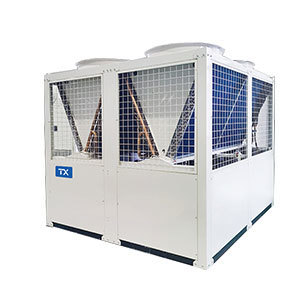Understanding Air Cooled Modular Chillers: A Key Component for Industrial Cooling Solutions

Air cooled modular chillers are increasingly becoming the go-to solution for industrial cooling applications. Their design allows for a flexible and efficient cooling process, integrating seamlessly into various operational settings. These chillers utilize air as the primary medium for heat exchange, making them an optimal choice where water resources are limited or where water cooling towers may not be feasible.
One significant advantage of air cooled modular chillers is their modular design. This allows for scalable cooling solutions that can be tailored to specific industrial needs. In environments where cooling demands fluctuate, modular chillers can be added or removed with ease, offering a dynamic approach to temperature management. This flexibility not only helps in optimizing energy use but also in reducing costs associated with over-provisioning cooling capacity.
Operational efficiency is another critical aspect of air cooled modular chillers. These units are designed to minimize energy consumption while maximizing cooling output. Advanced technologies, such as variable speed compressors and integrated controls, enhance their performance. This means that they can adjust their cooling output based on real-time demand, ensuring that energy is not wasted during periods of lower demand. Such features are essential for industries aiming to meet sustainability goals while maintaining operational efficiency.
Moreover, air cooled modular chillers are known for their relatively low maintenance requirements. Unlike water-cooled systems, which may involve extensive plumbing and water treatment processes, air cooled systems require less infrastructure. This simplicity not only reduces installation time and costs but also translates into lower maintenance efforts. Regular maintenance can typically be performed without the need for specialized technicians, further enhancing their appeal for industrial applications.
The applications of air cooled modular chillers are vast, spanning various industries such as manufacturing, pharmaceuticals, and food processing. In these sectors, maintaining precise temperature control is critical for product quality and process efficiency. Air cooled modular chillers provide a reliable solution that meets these stringent requirements with ease.
In conclusion, air cooled modular chillers represent a significant advancement in cooling technology within the industrial landscape. Their flexibility, efficiency, and ease of maintenance make them a preferred choice for many applications. Whether you are looking to optimize your facility's cooling system or seeking a reliable solution for fluctuating cooling demands, considering an air cooled modular chiller could be the right step forward. Understanding these systems' principles and advantages can lead to informed decisions that enhance operational efficiency and sustainability in your industrial processes.
One significant advantage of air cooled modular chillers is their modular design. This allows for scalable cooling solutions that can be tailored to specific industrial needs. In environments where cooling demands fluctuate, modular chillers can be added or removed with ease, offering a dynamic approach to temperature management. This flexibility not only helps in optimizing energy use but also in reducing costs associated with over-provisioning cooling capacity.
Operational efficiency is another critical aspect of air cooled modular chillers. These units are designed to minimize energy consumption while maximizing cooling output. Advanced technologies, such as variable speed compressors and integrated controls, enhance their performance. This means that they can adjust their cooling output based on real-time demand, ensuring that energy is not wasted during periods of lower demand. Such features are essential for industries aiming to meet sustainability goals while maintaining operational efficiency.
Moreover, air cooled modular chillers are known for their relatively low maintenance requirements. Unlike water-cooled systems, which may involve extensive plumbing and water treatment processes, air cooled systems require less infrastructure. This simplicity not only reduces installation time and costs but also translates into lower maintenance efforts. Regular maintenance can typically be performed without the need for specialized technicians, further enhancing their appeal for industrial applications.
The applications of air cooled modular chillers are vast, spanning various industries such as manufacturing, pharmaceuticals, and food processing. In these sectors, maintaining precise temperature control is critical for product quality and process efficiency. Air cooled modular chillers provide a reliable solution that meets these stringent requirements with ease.
In conclusion, air cooled modular chillers represent a significant advancement in cooling technology within the industrial landscape. Their flexibility, efficiency, and ease of maintenance make them a preferred choice for many applications. Whether you are looking to optimize your facility's cooling system or seeking a reliable solution for fluctuating cooling demands, considering an air cooled modular chiller could be the right step forward. Understanding these systems' principles and advantages can lead to informed decisions that enhance operational efficiency and sustainability in your industrial processes.

